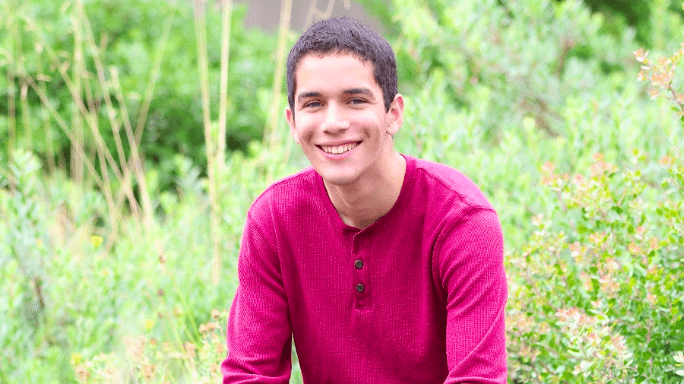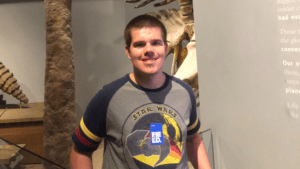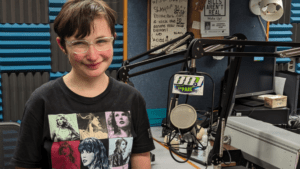This guest post is by Alex Bobenrieth, a young man on the autism spectrum who has been accepted and will be attending Portland Community College. Alex is applying for the Spring 2019 Making a Difference Autism Scholarship via the nonprofit KFM Making a Difference. You can read more about the organization and how to apply for our scholarship here. You can help our scholarship program continue to help these students by making a donation to our scholarship fund here (the majority of our scholarship program is ran through donors from our community such as yourself so no matter if you could donate anything, whether it be $5 anywhere up to $5,000 it would be making a difference!).
Maybe you’ve had a class with him or her. Maybe the lights bother him or her because they’re too bright. Maybe random noises frighten them for no apparent reason. Maybe they have a hard time when the fire alarm goes off. Maybe they don’t understand when other kids are upset with them. Maybe they seem highly intelligent in class, but don’t understand jokes or social cues. Maybe they are easily frustrated. Maybe they have autism. Autism is a developmental disorder that sometimes leads to challenges with the ability for a person to communicate and interact with the world around them. It is classified as a spectrum, which means everyone is different.
As a person with high functioning autism (formerly called Asperger’s Syndrome), I’d like to share with you my thoughts and ideas of how to make people on the spectrum feel more welcome in this world. Something important to always keep in mind is that autism affects everyone who has it differently. Some might be more similar than others, but no two cases are ever identical, just like no two non disabled people are ever the same. I have been fortunate in that I was born not just into a loving family, but a loving and inclusive community. I am set to graduate from Central Catholic High School in Portland, Oregon at the end of May, and I am beyond ready to meet new people. To everyone out there, I’d like to offer a helpful guide for understanding your current (I hope) or future friendship with that person on the autism spectrum.
Three traits that are beneficial to have when interacting with people on the spectrum are honesty, forgiveness, and patience. It’s always helpful to me when my friends explain to me when I say something awkward or insulting by mistake. That way, I can take their advice and use it to avoid making social errors, and also make amends with the person whose feelings I may have hurt. I also appreciate that I can talk to them and ask them to explain some social or emotional anomaly to me.
People with autism sometimes say something that leaves the feelings of a person hurt, but they are completely unaware that they said a hurtful thing. The first thing to consider is that a person on the autism spectrum is more often than not unaware of the effect their words and actions can have on the people around them. This can lead to misunderstandings and hurt feelings because they did not intend for their words to be interpreted that way. This does not necessarily mean they are self-centered, it just means that you need to have a private talk with them and gently explain how what they said could be interpreted the wrong way. That kind of constructive criticism is invaluable to a person with autism.
I find constructive criticism extremely helpful. I also appreciate it when my friends are willing to forgive me. Be patient and forgiving with people on the spectrum. We are human too. I like to know that I matter to my friends, and I know that because of the way they interact with me. To a person with autism, even something as simple as including them in a conversation, or asking them questions about something they are passionate about can mean a lot.
People with autism can view the world differently from other people. Sometimes we have special interests that encompass most of our thinking time. Oftentimes we create file systems in our heads to make connections between experiences and lessons learned. We can sometimes see things in black and white. We can love humor. We can be loyal friends. We can be eager to befriend you.
Enjoy your new friends. I’m off to hang out with mine.














